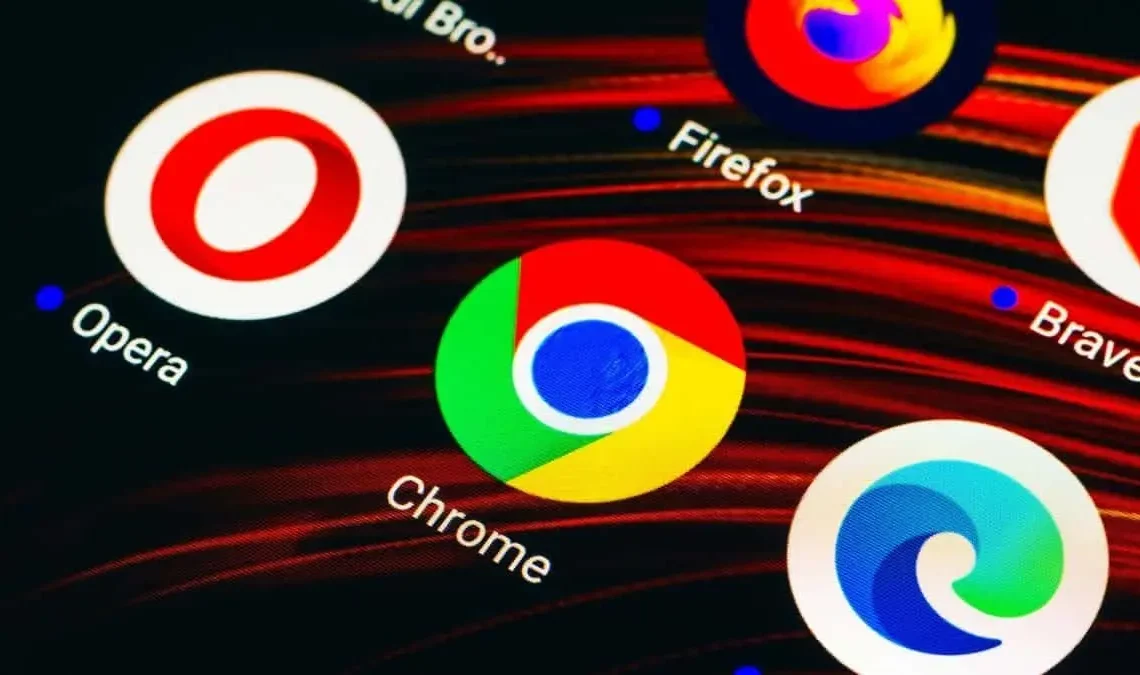Browser Battle, Choosing the right browser can make a world of difference in how smooth and secure your online experience is. You’re probably familiar with Chrome, Firefox, Edge, and Brave, but which one should you actually be using?
Each browser has its strengths. Chrome is known for its speed and seamless integration with Google services. Firefox prides itself on customizable features and robust privacy measures. Edge is gaining ground with its efficiency and advanced features, especially for Windows users. Brave, on the other hand, stands out by automatically blocking ads and trackers, giving you a cleaner and faster browsing experience.
Your choice ultimately depends on your personal needs and browsing habits. While Chrome offers a user-friendly interface and extensive extensions, Firefox appeals to those who value open-source software and customization. Edge integrates well with the Microsoft ecosystem, and Brave focuses on ensuring your privacy and blocking intrusive ads. Which browser aligns with your needs? Let’s explore what each has to offer and how they can improve your daily digital life.
Exploring User Experience and Interface Design
When choosing between Chrome, Firefox, Edge, and Brave, it’s essential to consider user experience and interface design. Each browser brings unique aesthetics, customization options, and varying degrees of accessibility.
The Aesthetic Appeal of Browser Interfaces
Chrome boasts a clean, minimalist design that many users find visually appealing. Its simple interface focuses on functionality and speed. Firefox, on the other hand, offers a slightly more colorful and customizable interface. It blends modern design with traditional elements.
Edge integrates seamlessly with Windows, providing a polished look that complements Microsoft’s ecosystem. Brave adopts a similar minimalist approach to Chrome but adds subtle enhancements for a unique touch.
Customization and Personalization Features
Customization is where Firefox truly shines. You can tweak almost every aspect of its interface, from colors to toolbar placement. Its extensive add-on library enhances functionality.
Chrome also provides a high degree of customization through extensions and themes, though it’s slightly less flexible than Firefox. Edge offers tailored personalization, especially for Windows users, with features like vertical tabs and collections.
Brave focuses on privacy but doesn’t skimp on customization. You can adjust your shields, customize new tabs, and tweak its privacy settings to suit your preferences.
Ease of Use and Accessibility
Chrome is renowned for its intuitive interface. Its design promotes ease of use, making it a favorite for many. Firefox also excels in this area, with a user-friendly design and helpful features like Pocket integration.
Edge offers advanced features like read-aloud and immersive reader, enhancing accessibility. It’s a strong choice for users with accessibility needs. Brave keeps things straightforward, appealing to those who prioritize speed and privacy without sacrificing usability.
Performance and Security Showdown
When conducting a browser comparison, you need to look at the balance between speed, security, and efficiency. We dive into how Chrome, Firefox, Edge, and Brave compare on these critical aspects.
Speed Tests: Page Loading and Performance Benchmarks
Speed is a crucial factor. On average, Chrome showcases impressive page loading times, frequently topping various performance benchmarks. Firefox follows closely, often excelling in JavaScript-heavy websites. Edge, leveraging Microsoft’s infrastructure, provides smooth and quick navigation, especially for Windows users. Brave stands out by blocking ads and trackers by default, which results in faster page loads.
| Browser | Average Load Time | Best for… |
|---|---|---|
| Chrome | ~1.5 seconds | General speed |
| Firefox | ~2.1 seconds | JavaScript performance |
| Edge | ~1.8 seconds | Windows integration |
| Brave | ~1.3 seconds | Ad-free browsing |
Safety First: Comparing Security Protocols
Security is paramount. Chrome offers robust protection with regular updates and advanced sandboxing. Firefox emphasizes privacy, providing built-in tools to block trackers and third-party cookies. Edge employs SmartScreen technology for phishing and malware protection. Brave sets itself apart with aggressive privacy measures, blocking invasive ads and trackers, which bolsters user safety significantly.
Key Security Features:
- Chrome: Sandboxing, frequent updates.
- Firefox: Enhanced Tracking Protection, encrypted DNS.
- Edge: SmartScreen, integrated password monitor.
- Brave: Default ad and tracker blocking, built-in Tor browsing.
Resource Management and Efficiency
Efficient resource usage ensures smooth performance on your device. Chrome, while fast, is notorious for high memory usage. Firefox has improved in this area with recent updates, offering better performance on systems with limited RAM. Edge strikes a balance, using minimal system resources while maintaining speed. Brave benefits from fewer ads and trackers, using less CPU and memory, enhancing speed and battery life.
| Browser | Memory Usage | Resource Efficiency |
|---|---|---|
| Chrome | High | High resource consumption |
| Firefox | Moderate | Improved memory management |
| Edge | Low | Balanced performance |
| Brave | Low | Efficient ad-free browsing |
You can explore more about Brave’s unique features and efficiency online.
Extending Functionality Through Add-Ons and Extensions
Selecting a web browser often depends on its ability to extend functionality through add-ons and extensions. These small software programs can provide additional features, enhance productivity, and customize the browsing experience.
Extension Libraries: Variety and Quality
Different browsers offer different extension libraries. Chrome boasts the most extensive library, with thousands of options for almost any need, from productivity to entertainment. Firefox follows with a vast selection, emphasizing privacy and security. Edge, leveraging the Chromium engine, offers a growing library compatible with many Chrome extensions, making it versatile. Brave also supports Chrome extensions but emphasizes those that enhance privacy features, giving you another layer of security.
Key Points:
- Chrome: Extensive library, vast variety.
- Firefox: Focus on privacy and security.
- Edge: Supports Chrome extensions, growing library.
- Brave: Prioritizes privacy extensions.
Ease of Development and Support for Extensions
Developing extensions can vary from browser to browser. Chrome provides extensive documentation and a supportive developer community, making it easier for you to create and maintain extensions. Firefox offers similar support but includes tools for testing and debugging extensions specifically tailored to privacy and security. Edge’s transition to Chromium has simplified development, enabling its use of Chrome’s developer tools. Brave benefits from the same ease, thanks to its Chromium foundation, but often encourages privacy-respecting developments.
Key Points:
- Chrome: Extensive documentation, active developer community.
- Firefox: Tools for testing and debugging, privacy focus.
- Edge: Chromium-based tools, simplified development.
- Brave: Ease from Chromium base, privacy-respecting developments.
Conclusion
Alright, you’ve got the lowdown on the big four: Chrome, Firefox, Edge, and Brave. Each one brings something unique to the table, whether it’s speed, customization, seamless integration, or a strong stance on privacy. Your pick should hinge on what you value most in your browsing experience.
Need speed and Google service integration? Chrome’s your go-to. Want customization and a commitment to open-source? Firefox is the way to go. If you’re all about efficiency and Microsoft ecosystem harmony, Edge has you covered. And for those who prioritize privacy and ad-free surfing, Brave is hard to beat.
No one browser fits all, but with this guide, you’re ready to find the perfect match for your digital needs. Happy browsing!


